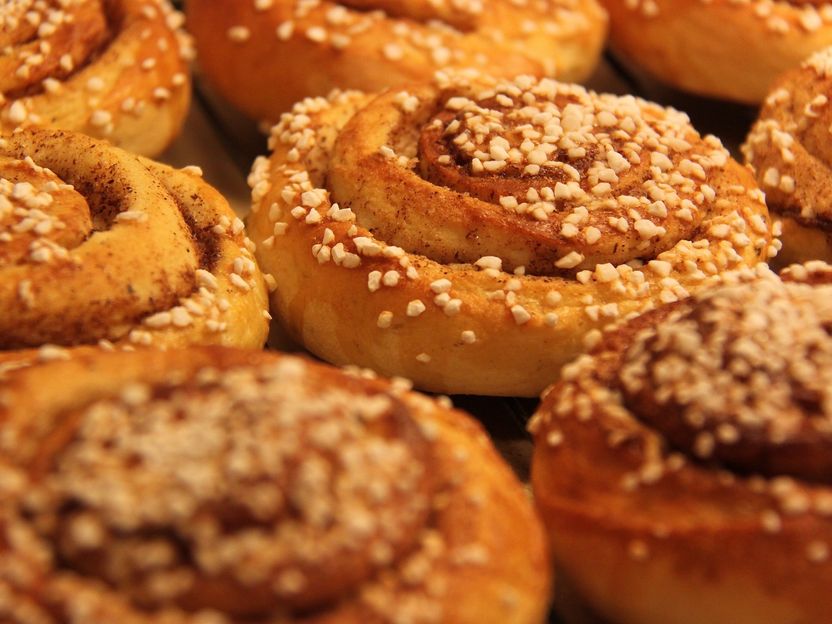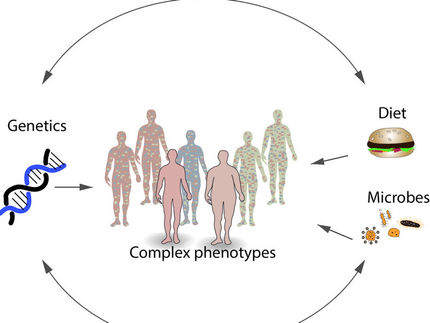Trend ingredients in baked goods, snacks and cereals
Advertisement
Seeds and kernels

ChristinaZetterberg / Pixabay
Seeds and kernels are real powerhouses of nutrients that can create new flavours, interesting textures and positively influence nutritional values in baked goods, cereals and snacks. According to Mintel's Global New Product Database, seeds and kernels are being used more frequently in baked goods, cereals and snacks.
The health benefits of seeds and kernels in snacks may also attract interest in other categories. In China, for example, a large majority of nut and seed consumers agree that nuts and seeds are rich in protein and fiber and are a good source of vitamins (75 percent of respondents). In addition to baked goods, more than two in five consumers of plant-based meat substitutes in the U.S. are interested in seeds as a source of protein in these products, according to a Mintel survey on plant proteins.
Seeds to improve texture
While the increasing use of seeds is largely due to specific health promises, taste and sensory aspects also play an interesting role. Seeds that are less commonly used or (still) unfamiliar to consumers can be combined with more common ingredients, such as ancient grains and nuts, to improve flavor and texture. Seeds can also be used in sweet baked goods such as pancakes, crackers, cookies and biscuits to improve nutritional values. The use of seeds and kernels can potentially strike a chord with consumers who are also concerned about health aspects when snacking, but do not want to compromise on taste.
Oats
Thanks to its rich nutritional profile, versatility and environmental friendliness, oats have a good chance of becoming a super ingredient in baked goods, snacks and cereals.
"Good for You, Good for the Environment."
Oats are valued as an environmentally friendly ingredient: they are particularly valuable in ecologically sustainable crop rotation systems, helping to ensure healthy farming practices and soil conservation. Oats are an ideal low-input crop that promotes diversity to reduce soil erosion and control plant diseases, insects and weeds. This makes oats a nutritious option for companies seeking to increase sustainability practices, following Mintel's 2030 food and beverage trend, "The Changing World."
Probiotics
Whereas probiotics were previously found mainly in dairy and savoury products, they now have the potential to add more value to baked goods, snacks and breakfast cereals. In addition to being enjoyable, products with probiotics can also offer functional benefits.
Boosting the immune system with the right probiotics
Probiotics offer several functional properties beyond gut health, including stimulating the immune system. Probiotics that have been shown to support immune health are of interest to consumers who take a proactive approach to their health. Currently, scientists are still researching the role probiotics can play in supporting the body's immune system. A recent study found that a combination of probiotics can significantly reduce the incidence of upper respiratory infections. Foods and beverages that support the immune system will appeal to consumers who want to boost their health with food.
Legumes
Also showing growth opportunities are legumes and legume flours, which could provide a "nutritional boost," especially in vegan and gluten-free products.
Legumes are recognized and used by consumers worldwide as a plant-based source of protein and other nutrients. They can be grown sustainably and are generally inexpensive. Nevertheless, between May 2020 and April 2021, just under one in ten new introductions of bakery products, snacks and cereals contained pulses or pulse flour. The COVID 19 pandemic should be a catalyst for the increased inclusion of pulses in this sector. In addition, healthy legumes such as chickpeas, lentils and fava beans are a staple in many ethnic cuisines and offer manufacturers an avenue for product innovation for foodies with a penchant for convenience and international foods.
Coconut Blossom Sugar
Coconut blossom sugar (also called coconut palm sugar or coconut sugar for short) is a natural, unrefined sugar derived from the flower sap of the coconut palm. It is often touted as being more nutritious and having a lower glycemic index than regular sugar. Given the ever-increasing health trend, coconut sugar is also benefiting from a kind of "health halo" thanks to related products such as coconut water, milk and oil. Over the past three years, newly introduced baked goods, snacks and breakfast cereals that use coconut blossom sugar have seen a significant increase globally, albeit from a small base. While coconut sugar cannot be touted as a nutritional superfood, the ingredient still has the ability to serve consumers' interest in natural and unprocessed ingredients.
Growing demand for natural sweeteners
Consumers are becoming more determined to eat healthier and adopt a more health-conscious lifestyle. For this reason, the public has never scrutinized food and beverage ingredients as closely as it does today. Sugar in particular has come under the spotlight of the public, politicians and the media, replacing fat and salt as the main concerns of consumers. High sugar consumption is increasingly blamed for rising rates of obesity and diabetes, putting pressure on the food and beverage industry to meet consumer demand for healthy yet tasty products. With growing awareness of the negative health effects of refined sugar, more and more consumers are setting out to find healthier sweeteners. With health often equated with naturalness, consumers are increasingly opting for natural sugar substitutes such as honey, coconut blossom sugar, agave syrup and stevia.
Mintel's conclusion:
Consumers are increasingly mindful of their diets to improve both their personal health and the health of the planet. They are also interested in foods and beverages that are natural sources of nutrients, taste great and address important sustainability concerns. Alongside 'free-from' and plant-based products, gut health could be the next big issue for bakery, snack and cereal manufacturers.
Note: This article has been translated using a computer system without human intervention. LUMITOS offers these automatic translations to present a wider range of current news. Since this article has been translated with automatic translation, it is possible that it contains errors in vocabulary, syntax or grammar. The original article in German can be found here.





























































